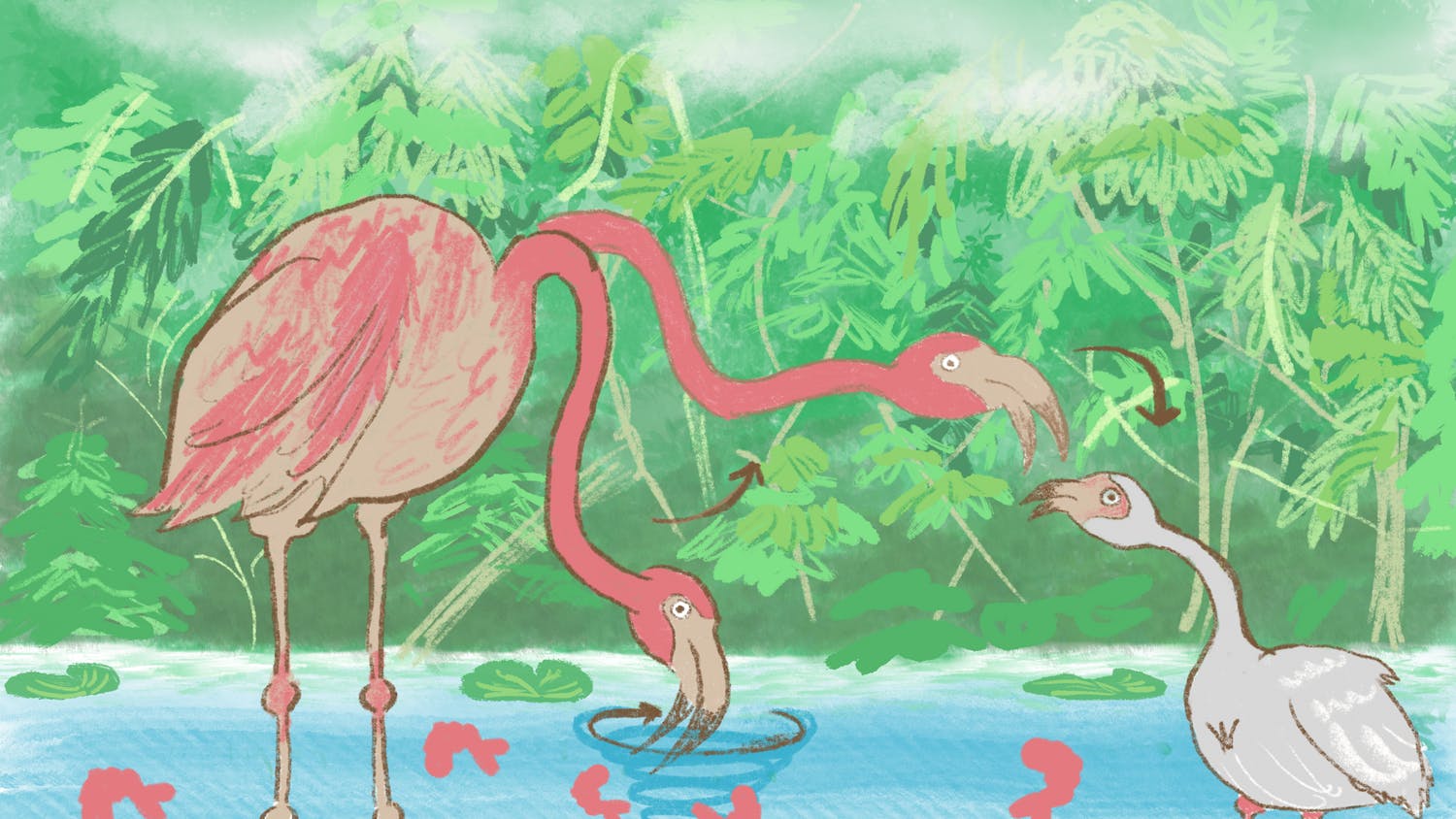Five minutes before any college class begins, the scene looks pretty familiar. Students sit in lecture halls of varied sizes, drink some morning coffee and, almost invariably, look at their phones.
There is a more specific pattern though. A quick glance around the room shows almost every phone screen is constantly changing. Students quickly scroll through their Twitter feeds, click in and out of apps to see if something new has popped up or glance at videos for a few seconds before moving on.
In 2015, Microsoft famously published a study that found that the average human attention span was a mere eight seconds, compared to twelve seconds back in 2000. This new number, they said, was lower than the attention span of a goldfish.
Naturally, many news publications jumped on the study for a few months, and then the buzz died down. Watching college students on their phones this past week has made me realize the idea of shortened attention spans only grows more relevant as time passes.
Since 2000, one big transformation has occurred: the massive growth of social media. Grandparents and parents have often told us that when the television first came out, it was not uncommon for families to watch entire programs together in the evening.
In those first years while television grew more popular, there were not many channels to jump between, and there were no cellphones to play on while waiting through commercials. As the Microsoft study points out, it us not uncommon for millennials to love multi-screening. This contrast in attention span now, only a few short decades later, is really astounding.
Consider the current election, for example. Instead of watching full debates, many people receive the news from 140-character Twitter arguments and 30-second video bits stitched together.
Similarly, some of the most popular vides on Facebook lately are recipe videos where hours of cooking are condensed into half a minute. And of course, there is Vine, an entire app built upon the love of short videos: six seconds, to be exact.
It seems difficult to refute that media developments have allowed for people to adapt toward much shorter bursts of attention.
What does this mean for the future? Less-publicized information from the study suggests that while our attention spans shorten, our multitasking skills have grown.
Is this really a trade-off we want to make? Personally, I find the growing attraction to short bursts of stimuli is a bit disheartening.
I have been to many dinners where it is hard for everyone to pull away from phones to converse. I have received class assignments to watch a twenty-minute video and had the silly reaction of thinking that is way too long.
Even more troubling is what we are losing from this change. I love to read books, but lately, my cell phone siting next to me can break my attention so easily.
There is something inexplicably serene about focusing on a relaxing activity for a long time, but it is rare now. Unfortunately, I don’t see this new development changing anytime soon.
sdloughr@indiana.edu





